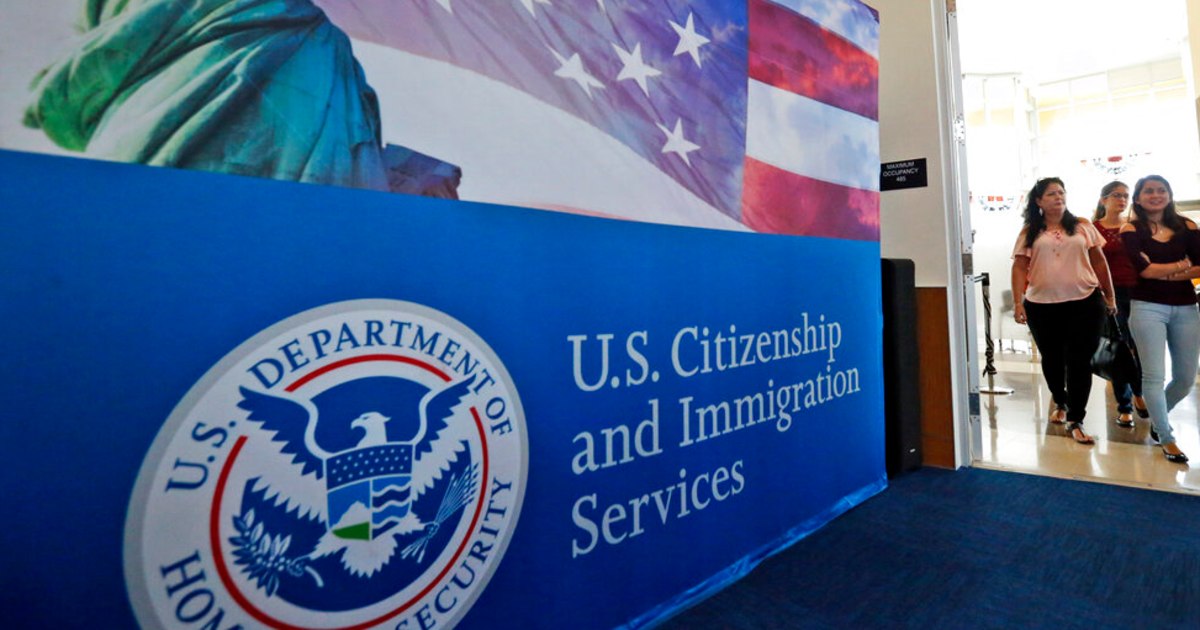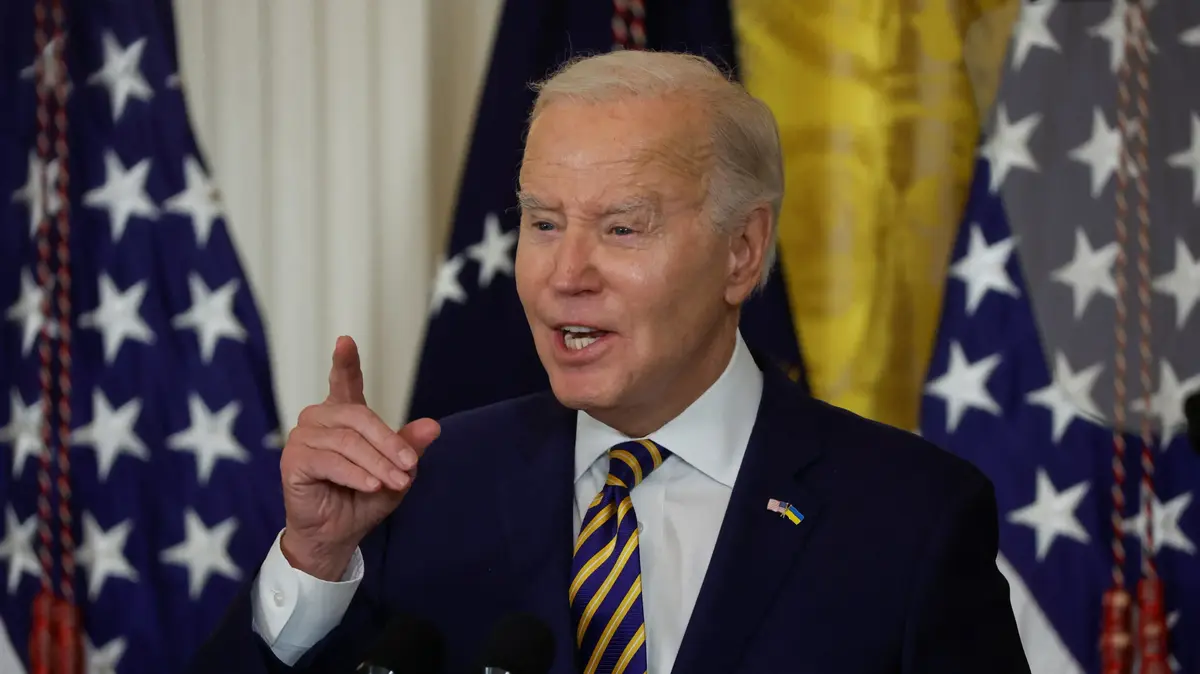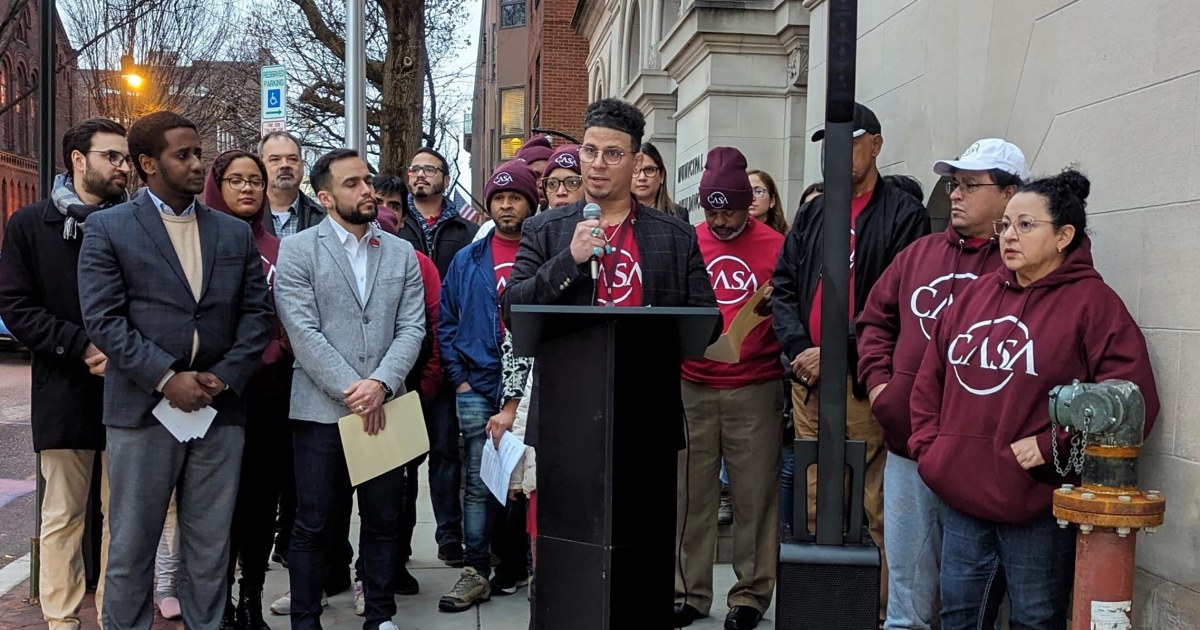By Nicole Acevedo and Cora Cervantes - NBC News
Despite the coronavirus pandemic and the fierce economic crisis it has unleashed, there are many families who have not applied for public benefits for those who qualify because they fear that the social burden norm approved by former President Donald Trump will affect the chances of a family member immigrant obtain permanent residence or US citizenship.
A study conducted by a group of experts in economic and social policy from the Urban Institute indicates that
one in seven adults in immigrant families
, that is 13.6%, reported that they did not enroll in Medicaid, the Health Insurance Program, last year for Children, the Supplemental Nutrition Assistance Program and housing allowances - even though they or their family members were eligible - because of concerns that it would affect their legalization efforts in the country.
Karin, 42, who asked to be identified only by her first name, is one of them.
She works as a housekeeper, has lived in Los Angeles for 15 years after fleeing the violence in Guatemala.
She and her two older daughters are trying to find a way to obtain a work permit or residency;
their youngest daughter was born in the United States.
[Immigrant families and children are free in Texas after crossing the border because Mexico no longer accepts their quick return]
You have avoided enrolling in MediCal
, California's Medicaid program, even though it is available to eligible state residents regardless of their legal status.
Under the Trump Administration, immigrants seeking legal status and whose families enrolled in publicly funded programs could be considered a public charge if officials determined they might need government assistance.
The change in the rule came after the Trump Administration expanded the definition of the term.
The Department of Homeland Security had previously defined that "public charge" could be someone who relied on cash assistance or government-funded institutional long-term care, but the
Trump-era
rule
broadened the definition
to include additional benefits. such as food stamps, non-emergency Medicaid, certain prescription drug subsidies, and housing vouchers.
President Joe Biden signed an executive order calling for an "immediate review of the agency's actions on the inadmissibility of public charge."
Karin said she preferred to remain uninsured until the Biden administration explicitly said that enrolling in state public health insurance would
not classify people as a public charge
and would not jeopardize its legalization efforts in the country.
"Get me out of here": the cry of a 9-year-old girl detained by ICE for more than 500 days
Feb. 4, 202102: 14
The Urban Institute found that nearly
28% of immigrants in families
with
homeless
members avoided a number of public benefits to which they were entitled due to the "chilling effect" of the rule.
Eliseo López, 72, makes a living doing home repairs.
He has lived in Los Angeles for three decades.
During the pandemic, he has struggled to find enough work to make ends meet.
Age-related ailments make it difficult for you to continue working.
[Almost 400,000 immigrants can spend years waiting for their visa or 'green card' due to the delays of the pandemic]
As a permanent resident, López is entitled to retirement benefits.
But he refused to apply last year for fear that it might jeopardize his wife's chance of obtaining permanent residence.
"We stopped all immigration procedures for my wife because
of Trump's anti-immigrant behavior
. We always stayed on the sidelines, we never asked anyone for help," Lopez said, "I just wouldn't do anything that could potentially get her deported."
Their daughter, who is a US citizen, helped them financially when they ran out of savings during the pandemic.
Due to the family's mixed immigration status, they did not receive a stimulus check for COVID-19.
López said that now that Biden is president, he feels more comfortable resuming the legalization process for his wife.
[Biden Announces Raising the Limit for Refugees Admitted Per Year to 125,000, Reversing Trump's Cuts]
Hamutal Bernstein, co-author of the study, said: "I think there is
going to have to be a
very strong
information and education effort
given the misinformation, fear and confusion surrounding this rule."
Bernstein found that there are other factors that also deter families from applying for benefits, such as fear of information sharing by immigration authorities, language barriers, and difficulties in filing enrollment.
There is always fear
Karla, 39, is a Mexican immigrant who asked to be identified only by her first name,
lost her job in childcare during the pandemic
and has been cleaning houses to cover her expenses every month.
A new bipartisan bill that opens a path to Dreamer citizenship is presented in the Senate
Feb. 5, 202101: 43
Her husband is an essential worker who delivers products to supermarkets.
They have three children.
[ICE begins to vaccinate immigrants detained against COVID-19 after months of complaints, infections and deaths]
"We live just to have enough money for rent and food," Karla said.
The only extra help she remembers receiving to support her three teenage children, all of them US citizens, has been meals through the state's school lunch program.
"There is always fear, but sometimes the need wins and you apply to certain programs while you fear that it may affect your legal status in the future," he explains.
Karla said she
wishes she had health insurance
after undergoing traumatic emergency dental surgery two years ago.
"I just need healthy teeth that help me eat well," he said, "I hardly go to the doctor because I don't have access. If something hurts a lot, I have no choice but to go to the emergency room."
[Pause in deportations for 100 days and a path to citizenship in 8 years: Biden begins his government with plans for major immigration changes]
Karla said she has looked into enrolling in California's public health insurance program, but the application process has been difficult.
Bernstein said: "To complement whatever the Government does to undo the rule, it will also be very important to do education campaigns, communications, that there is a commitment with immigrant families to inform them about the policy changes, also to
try to rebuild the confidence and reduce some of those fears
by participating in the programs that they or their children may be eligible for. "















